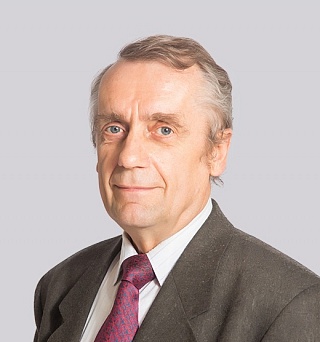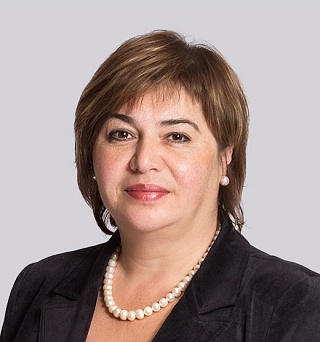Adventures of Extension
13 January 2025There are two aspects of pharmaceuticals. The obvious is which medicine should be prescribed to treat a particular disease. Another one is that a pharmaceutical is, as a rule, the subject of a patent. Pharmaceutical products stand aside from other products because before going to the public, they must go through research, clinical trials, and registration with the health ministry or other authorised government bodies. This multi-tiered composite procedure gave birth to extending the term of patents directed to pharmaceutical products up to 25 years in many jurisdictions.
This is not a purely straightforward action. Circumstances surrounding such cases may present difficulties to the patent owner.
In one of the court cases ending in April 2024, Promomed Rus, a Russian company, initiated an IP court action seeking cancellation of the extension term of patent No 2245335, owned by Eisai R&D Management Co. (Japan). The patent’s validity dates back to June 16, 1999. The patent owner filed a request for an extension before January 1, 2015, a key factor in this situation, which will be discussed below.
The plaintiff based his claim on the assertion that patent No 2245335 was not extended for the invention (compound) corresponding to the medicine Eribulin (INN) – active agent of the medical product Halaven registered in Russia but for a multitude of other compounds covered by the general formula of independent claim 1 of the patent which is unrelated to Eribilin, i.e. compounds which are not active ingredients of the registered product. Besides, he claimed that the patent owner had known in advance that not all inventions of the group were related to Eribulin and that the salt of the active agent of the product Halaven (Eribulin Mesylate) was not disclosed in the patent. Besides, the plaintiff also stated that the specification of patent No 2245335 did not confirm the therapeutic indication of the invention identical to that indicated in the leaflet for the product Halaven.
He concluded that the leaflet for the product Halaven instructed that only a specific breast cancer at some isolated stages may be treated, such as only locally advanced cancer or metastatic cancer (stages III and IV), and only of those patients who had received two phases of chemotherapy.
The respondent (Japanese company and Rospatent as a third person) expectably refuted the claims, arguing that the extension term of the patent in respect of claims 1,2,3,5,7, 11, 13-16 and 19 were lawful and arguments to the contrary by the plaintiff are not based on law.
The respondent also argued that the Eribulin substance was covered by independent claim 1 and dependent claims 2, 3, 5, 7, 11, 13-16, and 19 of the patent. After making several similar statements, the respondent concluded that the specification of the invention points to the fact that the patented group of compositions has anticancer activity concerning many kinds of cancer.
The patent office supported the respondent by submitting a report stating that the patented group of compounds (Eribulin in particular) possesses anticancer activity, allowing it to be used in Halaven. Rospatent also confirmed that Eribulin is an active ingredient of Halaven medicine. This led Rospatent to conclude that contrary to the plaintiff’s allegation, independent claim 1 embraces a group of macrocyclic compositions covered by their general structural, chemical formula and pharmaceutically acceptable salts that include all salts, including mesylate.
The IP court also engaged an expert in chemistry who answered questions asked by the Court.
The Court gave an extensive general explanation why on the basis of the law regulating PTE procedure on the date of filing the PTE request in respect of RU patent No 2245335, patents for invention relative to the medicine covered by the general structure may be extended in respect of the claims directed to such medicine in the whole scope even if a single alternative compound of such general formula is directed to the active agent of the registered product. IT ALSO RELIED ON RELEVANT POSITIONS OF THE Supreme Court.
The IP Court confirmed that general disclosure of the anticancer activity with the indication of some specific kinds of cancer for the claimed group of compounds in the patent specification is sufficient to support the fact that the particular compound can be used in the registered product for the therapeutic indication approved for the registered product.
The IP Court also stated that the plaintiff’s assertion that the specific salt of the active agent (Eribulin mesylate) used in the registered product should be disclosed in the patent specification so that the patent validity term can be extended had no basis.
As a result, the Court dismissed the plaintiff’s claim and confirmed that Rospatent’s decision to extend the patent’s validity term is entirely based on the law applicable to this case.
The plaintiff attempted to reverse the judgment in the cassation instance of the Court but failed.
Discussion
The plaintiff did not initiate a Court action without reason. Current Article 1363(2) of the Civil Code provides that when an extension of a patent is granted, the patent office issues a supplementary patent with claims characterising a set of features characterising a product for which permission was granted. This means that the extension may cover only one product for which the marketing authorisation was granted. This is a basic argument on which the plaintiff relied when he appealed against the extension.
The trap (or hope that the Court will not notice that?) for the plaintiff was that the patent owner had filed a request for extension before January 1, 2015. Before that date, the patent in its entirety was extended without granting a supplementary patent containing revised claims and without limitation on the scope of the patent claims covering the marketed (registered) product.
The above Court judgement is important for patent owners in that many patents for which extension was sought before 2015 remain, according to the old rules. Their patent owners may feel relatively calm and recall this landmark judgement in case of necessity.
To access this website, we request that you read and accept the Terms of Use.











